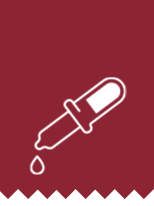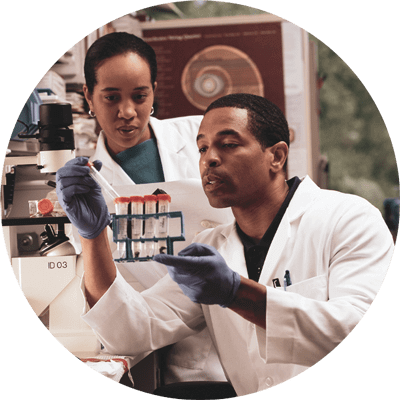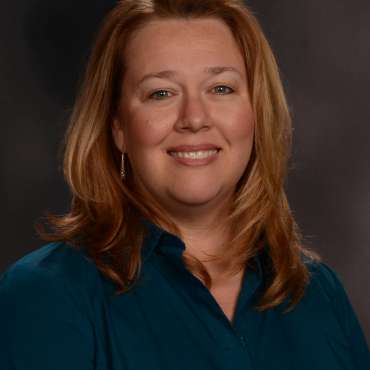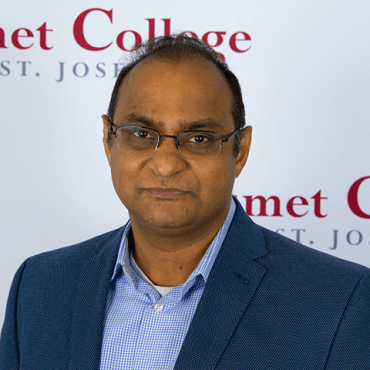
Medical Laboratory Science
CALUMET COLLEGE OF ST. JOSEPH’S MEDICAL LABORATORY SCIENCE PROGRAM SUPPORTS YOUR PASSION TO SERVE PEOPLE THROUGH QUALITY MEDICAL CARE.
The Medical Laboratory Science degree prepares you to serve a vital role in the diagnosis, treatment, management, and prevention of disease.
This degree is designed to be a 3+1 configuration built on a partnership between the Science department at CCSJ and School of Medical Laboratory Science. Students will complete the science curriculum at CCSJ within three years and, upon acceptance, spend the fourth year at the accredited School of Medical Laboratory Science associated with the Community Healthcare System or Northern Indiana Franciscan Alliance Healthcare System.
In the fourth year, you will complete coursework consisting of classroom instruction in clinical laboratory sciences and hands-on laboratory activities, as well as training with actual laboratory testing.
In the Medical Laboratory Science program, you will
- Advance your scientific knowledge and critical thinking skills
- Hone your research skills and problem-solving ability
- Develop specific expertise in areas of sample preparation, data analysis, scientific calculations and more
- Learn to communicate the results of scientific research verbally and in writing
- Solidify your awareness of the relevance of biological and chemical knowledge to human health and welfare
Request Information
Career
Options
Career Options with this major include, but are not limited to work as a:
- Medical Laboratory Scientist
- Forensic Laboratory Scientist
- Veterinary Medical Technologist
- Biotechnologist
- Industrial Research Firms

Faculty
Nicole Griffin, M.L.S.
Ahmed Lakhani, Ph.D.
Program
Objectives and requirements
121 credit hours
The 3+1 Medical Laboratory Science program requires students closely adhere to the following plan of study:
Scientific Knowledge and Critical Thinking:
- Students will demonstrate a level of competency for understanding core principles.
- Students will demonstrate the ability to locate and critically evaluate scientific information.
Research Skills and Problem Solving Ability:
- Students will demonstrate the ability to design studies to test the biological and chemical hypothesis.
- Students will demonstrate the ability to learn independently and to critically evaluate the significance of research results.
- Specific Expertise: Students will develop and justify a range of sample preparation, data analysis, various scientific calculations (enzyme kinetics, molarity, stoichiometry).
- Students will be able to validate techniques of analytical balances, autoclave, UV/Vis spectrometer, IR spectrometer, gel electrophoresis, simple and fractional distillation, PCR, DNA extraction, titrations, pH analysis and normalization.
Communication:
- Students will demonstrate the ability to communicate the results of scientific research verbally and in writing.
Ethics and Advocacy:
- Students will demonstrate the ability to design studies that meet professional ethical standards.
- Students will demonstrate an awareness of the relevance of biological and chemical knowledge to human health and welfare.
First Year – Freshman (Core)
Fall Semester
- EWPC 103 – English Composition
- GENL 100 – College Survival
- HUM 110 – Foundations of Western Culture
- THEO 110 – Social Justice
- BIOL 115 / 115L – Cell and Evolution / Lab
- PSY 100 – Intro to Psychology
Spring Semester
- Humanities General Education Requirement
- EWPC 150 – Public Speaking
- EWPC 204 – Academic Reading and Writing II
- PHIL 200 – Great Philosophical Ideas
- MATH 104 – Algebra and Trigonometry (if not placed into MATH 104, take prerequisite MATH 103 first)
Second Year – Sophomore (Core)
Fall Semester
- MATH 171 – Principles of Statistics
- SOCL 210 – General Sociology
- CHEM 200 / 200L – General and Analytical Chemistry I / Lab
- MATH 230 – Calculus I
- BIOL 230 / 230L – Microbology / Lab
Spring Semester
- THEO 230 – Theological Foundations
- BIOL 315 / 315L – Mendelian and Molecular Genetics / Lab
- CHEM 205 / 205L – General and Analytical Chemistry II / Lab
- MATH 231 – Calculus II
Third Year – Junior
Fall Semester
-
- PHYS 300 / 300L – Physics I/Lab
- BIOL 300 / 300L – Human Anatomy and Physiology I / Lab
- CHEM 320 / 320L – Biochemistry / Lab
- CHEM 310 / 310L – Organic Chemistry I / Lab
Spring Semester
- BIOL 305 / 305L – Human Anatomy and Physiology II / Lab
- PHYS 305 / 305L – Physics II / Lab
- CHEM 311 / 311L – Organic Chemistry II / Lab
- BIOL 360 – Principles of Immunology
Fourth Year -Senior (MLS Program) – Community Path
Fall Semester (July to December)
- MLS 400 – Blood Bank
- MLS 401 – Clinical Chemistry
- MLS 402 – Hemtologoy and Coagulation
- MLS 403 – Microbiology
- MLS 404 – Immunology
- MLS 405 – Phlebotomy
- MLS 406 – Urinalysis / Body Fluids
- MLS 407 – Laboratory Operations
Spring Semester (January to June)
- MLS 400 – Blood Bank
- MLS 401 – Clinical Chemistry
- MLS 402 – Hemtologoy and Coagulation
- MLS 403 – Microbiology
- MLS 404 – Immunology
- MLS 405 – Phlebotomy
- MLS 406 – Urinalysis / Body Fluids
- MLS 407 – Laboratory Operations
**To get into MLS program, student must have 2.75, or greater, cumulative and scinece grade point average
*Students are not able to repeat a prefix in their Humanities and Social Science choices.
Fourth Year -Senior (MLS Program) – Franciscan Path
Fall Semester (July to December)
- HSCI 452 – Clinical Chemistry
- HSCI 453 – Clinical Hematology
- HSCI 454 – Clinical Immunohematology
- HSCI 455 – Clinical Microbiology
- HSCI 458 – Clinical Immunology
Spring Semester (January to June)
- HSCI 452 – Clinical Chemistry
- HSCI 453 – Clinical Hematology
- HSCI 454 – Clinical Immunohematology
- HSCI 455 – Clinical Microbiology
- HSCI 460 – Clinical Urinalysis
**To get into MLS program, student must have 2.75, or greater, cumulative and scinece grade point average
*Students are not able to repeat a prefix in their Humanities and Social Science choices.
General Education Requirements
Math General Education Requirement
Picked from the following:
- MATH 104 – Algebra and Trigonometry
- MATH 110 – Finite Math
- MATH 171 – Principles of Statistics
Social Science General Education Requirement
Picked from the following:
- PSY 100 – Intro to Psychology
- PLSC 220 – American Political Systems
- SOCL 210 – General Sociology
- HIST 110 – American Civilization
- HIST 115 – Western Civilization
- HIST 120 – World Civilization
- ECON 160 – Economic Theory & Personal Finance
Humanities General Education Requirement
Picked from the following:
- ARTS 100 – Intro to Performing Arts
- ARTS 120 – Digital Photography
- ARTS 140 – Intro to Graphic Design
- ARTS 160 – Drawing I
- ARTS 170 – Intro to Visual Arts
- EWPC 111 – The Literary Experience
- PHIL 200 – Great Philosophical Ideas
You Belong
at Calumet College of St. Joseph!




